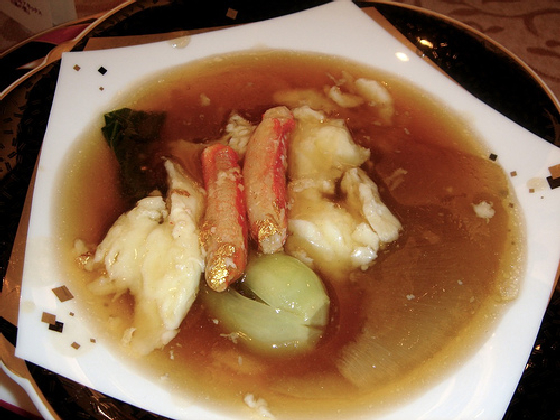 Shark Fin Soup: a delicacy or a crime? Yemeni fisherman take advantage of Egypt’s protection laws and kill sharks for fins in Red Sea for Japanese soup.[image via jmurawski]
Shark Fin Soup: a delicacy or a crime? Yemeni fisherman take advantage of Egypt’s protection laws and kill sharks for fins in Red Sea for Japanese soup.[image via jmurawski]
With fragile ecosystems overrun by tourism, waste piling high on Cairo’s streets, and an oil spill initially covered up by authorities, the recent dispatch about Yemeni fishermen caught with 71 shark carcasses wrest from the Red Sea reveals a spatter of environmental progress in Egypt.
Sharks are valued not for their meat, but for their fins. A delicacy in Hong Kong, a bowl of Shark Fin soup costs $100, writes Cam McGrath in an article for Al Masryalyoum. The cruel practice of cutting off shark fins and discarding the remains has been banned in Egypt since 2005, but conservationists believe that this legislation has caused renewed interest in Red Sea sharks.
 [image via candice]
[image via candice]
“This Yemeni incident has made it very obvious that the shark [protection] legislation we passed five years ago has made us a very nice target for shark fishermen in the region,” Amr Ali, managing director of the Hurghada Environmental Protection and Conservation Association (HEPCA) told McGrath. “They know now that if they go to the Egyptian Red Sea where sharks are protected and the population is increasing they’ll get a good opportunity to catch them.”
After safari operators alerted authorities to suspicious activity near Zabargad Island, 230km SE of Marsa Alam and renowned for its hammerhead and reef shark populations, the Egyptian navy seized and escorted the Yemeni boat to Bernike port. A decision about appropriate action is pending.
A total of 60 Yemeni fishermen and up to 6 boats were involved, though it is not clear whether the last 2 boats were captured and brought to account. “Marine conservation groups estimate that up to 100 million sharks are killed worldwide each year for their fins. Illegal finning has devastated shark populations and brought many of the world’s 350 shark species to the brink of extinction,” according to McGrath.
Even if legislation has attracted these fishermen like shark to blood, authorities should dole out swift punishment in order to deter future poaching efforts. This is no easy task, of course, given the price tag associated with fins and a general fear of and apathy towards sharks. What will give authorities incentive, though, according to Ali, is the LE 1.25 million ($220 thousand US) loss to tourism that the death of one shark entails.
More On Conservation in the Middle East:
What Tagged Hawksbill Turtles From Qatar Tell Us
Clash Between Greenpeace Activists and Bluefish Tuna Fishermen in the Med Sea
Endangered Baboons and Hyenas Rescued from Private Home in Abu Dhabi



